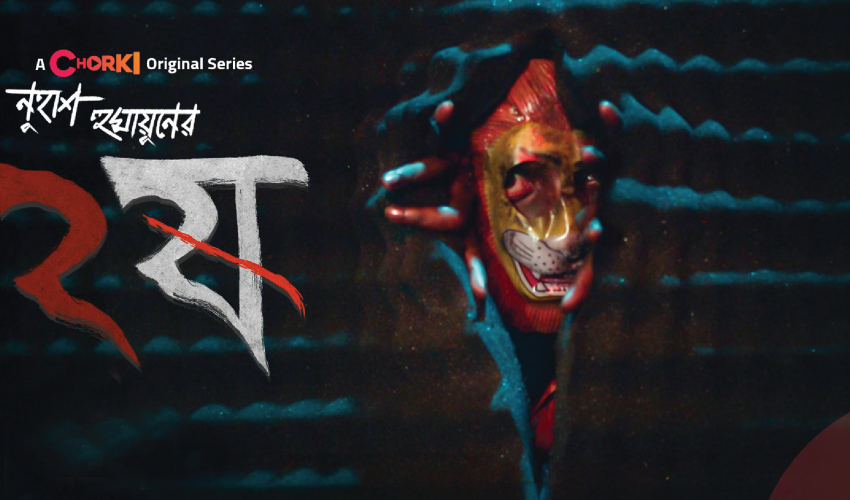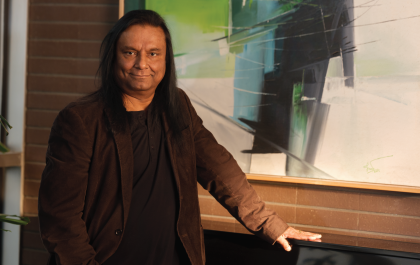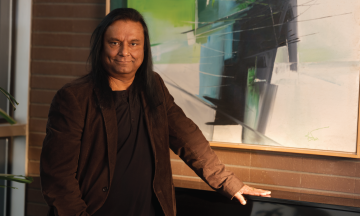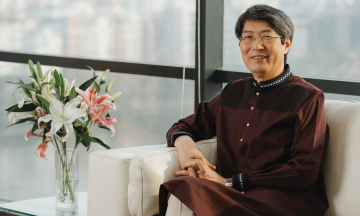By Ayman Anika
When Pett Kata Shaw (2022) premiered on Chorki in 2022, it felt like a breath of fresh air in Bangladeshi entertainment. Here was a show that reimagined our beloved folklore with sleek cinematography, tight story-telling, and spine-chilling atmospheres. I was hooked from the very first frame, eagerly awaiting each episode like a kid waiting for Eid morning. Naturally, when the second season, Dui Shaw, was announced in 2024, I was ready to dive back into Nuhash Humayun’s world of horror and mystery. But, oh, how the mighty have stumbled.
Before I explain why I felt Dui Shaw didn’t live up to its predecessor, let me start with some praise – because it wasn’t all bad. The first episode, “Waqt,” was brilliant. I’ll go so far as to say it’s one of the best episodes in the entire Pett Kata Shaw anthology. The unconventional plot about five friends committing an unspeakable sin and then facing the consequences was both gripping and unnerving.
The ticking-clock motif was genius, the special effects were subtle but effective, and the performances were on point. For a moment, I thought, “Nuhash, you’ve done it again!” Then came “Bhagya Bhalo,” and my enthusiasm hit a roadblock.
Bhagya Bhalo: The Good, The Bad, and The Overdone
Let’s start with the good: Mosharraf Karim. The man is an acting powerhouse, and he carries the episode with such gravitas that you almost forgive its flaws. Almost. The story – a fortune teller making a deal with the devil to save his mother – was intriguing on paper, but the execution left much to be desired. The problem? Unnecessary VFX. Look, I get it – special effects can elevate horror, but here, it felt like they were trying to dazzle us rather than scare us. A simple, grounded approach would’ve served the story better.
Instead, we got over-the-top visuals that took away from the emotional core of the episode. It’s like serving a beautifully cooked biryani with glitter on top – why ruin a good thing?
Antara: A Fumbled Continuation
The third episode, “Antara,” picked up where season one left o , and I had high hopes for it. But as I watched, those hopes slowly shriveled up like forgotten panta bhaat.
Quazi Nawshaba Ahmed does a commendable job as Antara, a woman trapped in a diabolical marriage to the Iblis (played by Afzal Hossain). The setup was there, the tension was palpable, but the execution? Mediocre at best.
The episode struggled to balance its psychological and supernatural elements, leaving both feeling underdeveloped. I wanted to feel Antara’s fear, her desperation, her will to fight back. Instead, I found myself glancing at my phone, wondering how much longer the episode had left. It’s a shame because the premise had so much potential, but the writing lacked the depth and nuance needed to make it truly impactful.
Beshura: The Finale That Fizzled
And then there was “Beshura,” the grand finale that was supposed to leave us in awe. Spoiler alert: it didn’t.
Jaya Ahsan plays Eve (the first mother), a woman accused of witchcraft and held captive by a superstitious village. Now, Jaya Ahsan is a phenomenal actress, and her performance is the episode’s saving grace. But even she couldn’t salvage a plot that felt so disconnected from the rest of the season that I started wondering if I’d accidentally clicked on the wrong show. The themes of misogyny and “talentless” being outcasted were compelling, but they were buried under a story that lacked coherence. Nothing about the episode felt tied together, and by the end, I was left scratching my head. Where was the payo ? Where was the sense of dread and unease that Pett Kata Shaw is known for?
The Bright Spots in the Darkness
Despite my gripes, Dui Shaw wasn’t a total disaster. The production quality remains top-notch. The color grading is impeccable, creating a moody, atmospheric vibe that’s perfect for horror. The background music, too, deserves a shoutout – it’s eerie, evocative, and elevates even the weaker moments of the series.
The casting was another strong point. From Mosharraf Karim to Jaya Ahsan, the actors gave it their all, even when the scripts didn’t fully support them. It’s clear that Nuhash Humayun knows how to assemble a talented team; now he just needs to give them better material to work with.
Why Dui Shaw Didn’t Work
The biggest issue with Dui Shaw is that it lacks the tight story-telling and thematic cohesion that made season one such a standout. Season one had a clear identity – it was rooted in folklore, and each episode felt like a carefully crafted parable. Season two, on the other hand, tries to do too much. It’s as if the series is caught between wanting to be a psychological drama and a supernatural thriller, and in the process, it fails to fully commit to either.
Final Verdict: A Step Backward
Ultimately, Dui Shaw is a classic case of a sequel that fails to live up to the original. It’s not without its moments of brilliance (“Waqt,” I’m looking at you), but those moments are overshadowed by uneven story-telling and a lack of focus.
Nuhash Humayun is an undeniably talented filmmaker but as a fan of Pett Kata Shaw, I can’t help but feel disappointed. Season one set a high bar, and season two just didn’t measure up.
Here’s hoping that if there’s a third season, it learns from the mistakes of Dui Shaw and recaptures the magic that made Pett Kata Shaw such a game-changer. Until then, I’ll be rewatching season one and pretending Dui Shaw was just a bad dream.













